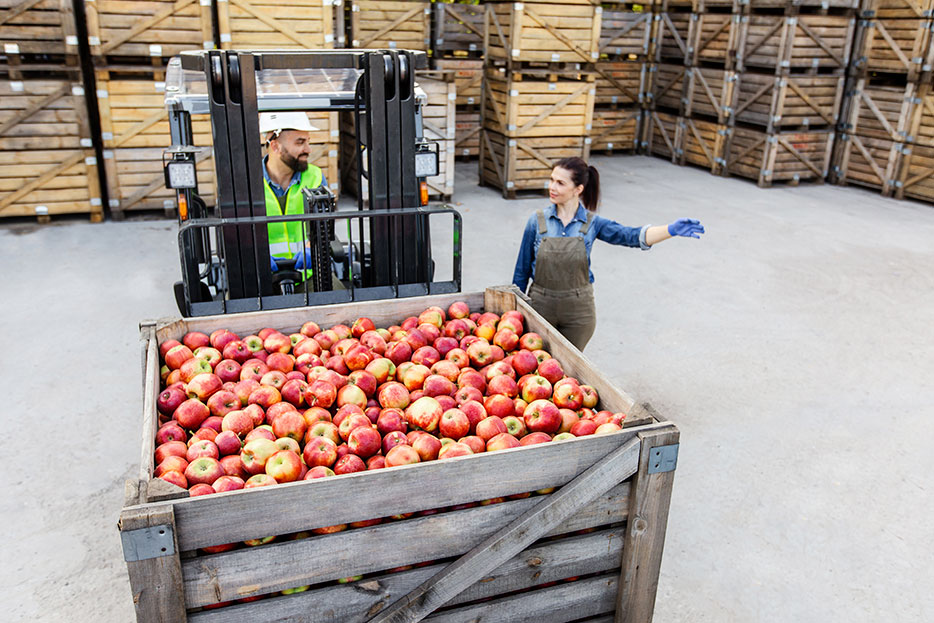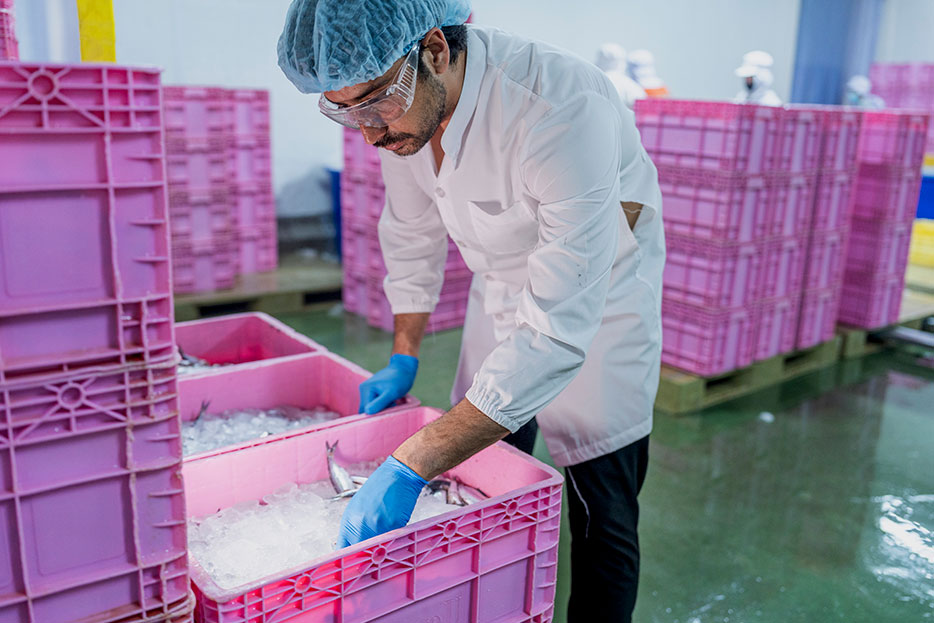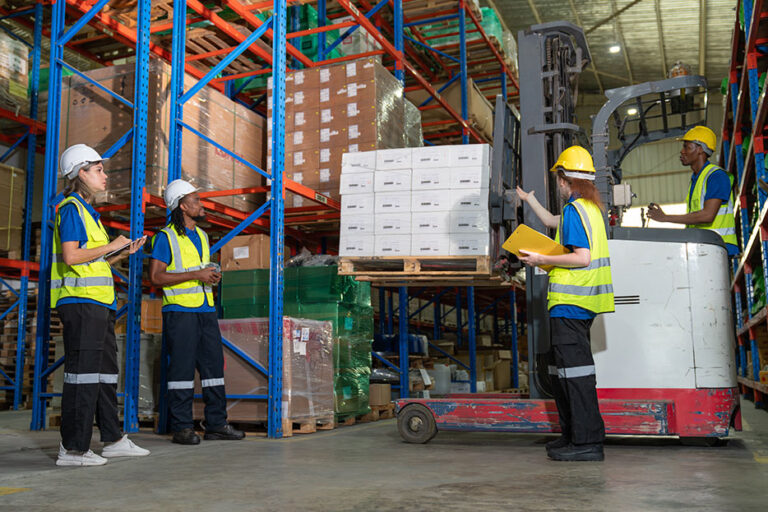Last week, we discussed how to handle damaged goods during customs checks, as this may be a situation you may encounter. On the other hand, there are also perishable products, such as fresh produce, seafood, pharmaceuticals, and flowers.
The international trade of these goods plays a critical role in feeding populations, sustaining industries, and driving global commerce. Yet, this sector faces unique obstacles at customs checkpoints, where delays, complex documentation requirements, and varying national regulations can quickly erode product quality and profitability.
Unlike non-perishable commodities, perishable goods are extremely time-sensitive and often require specialized handling, storage, and transportation conditions. Customs procedures that are not streamlined or adapted to these needs can result in spoilage, increased costs, and disruptions along supply chains.
Today, our Mexican customs brokers have created this article, so you can understand the customs challenges that affect perishable goods trade to ensure food security, maintain product integrity, and remain competitive in global markets.
Key customs challenges faced by perishable goods
The trade of perishable goods brings particular urgency to customs procedures. Unlike durable products, these items have a very limited shelf life and strict storage requirements.
This makes them especially vulnerable to inefficiencies or inconsistencies at border checkpoints. Hereunder are some of the most pressing challenges businesses encounter when moving perishable goods across international borders.

Delays and time sensitivity at borders
As we mentioned, time is the single most critical factor in the movement of perishable goods. Even short delays in customs clearance can lead to significant losses.
For goods that rely on cold-chain logistics, every extra hour in transit increases the risk of temperature fluctuations and spoilage. Such delays not only undermine product quality but can also damage brand reputation and erode customer trust in supply reliability.
Complex documentation and compliance requirements
Perishable goods are often subject to more stringent regulatory oversight than non-perishable items, including health certificates, phytosanitary permits, and special handling declarations.
Exporters and importers must ensure that all documentation is accurate, complete, and submitted within tight deadlines. Errors or omissions can trigger additional inspections or even shipment rejections, compounding time and financial losses. For small producers and exporters, navigating these bureaucratic hurdles can be especially burdensome.
Inconsistent regulations between countries
Global trade of perishables is complicated by the fact that countries often maintain different standards for food safety, pesticide residues, packaging, and labeling. What is acceptable in one jurisdiction may not meet the import criteria of another.
This lack of harmonization creates uncertainty for exporters, who must tailor their shipments to each destination’s rules. When regulations change with little notice, the risk of noncompliance rises, increasing the likelihood of shipment delays or confiscations.
Limited infrastructure for cold chain management at customs
Many ports, airports, and land border facilities are not adequately equipped with the specialized infrastructure required to handle perishable products.
Insufficient refrigerated storage, a lack of fast-track lanes for temperature-sensitive goods, or inadequate inspection facilities can compromise the cold chain during customs clearance.
Once the cold chain is broken, product quality and safety can deteriorate rapidly, resulting in significant financial losses and waste.
Consequences of inefficient customs procedures
Inefficient customs procedures have far-reaching consequences for perishable goods trade. Because these products are time and temperature-sensitive, even minor disruptions can quickly snowball into financial, operational, and reputational damage.
Below are the main impacts businesses and supply chains typically face when customs processes fail to meet the demands of perishable commodities.
1.- Product spoilage and quality loss
The most obvious one is that delays at border crossings, inspections, or document verification directly increase the risk of spoilage for goods with short shelf lives.
Temperature fluctuations during extended waiting times may also lead to a loss of nutritional value, texture, or appearance, critical quality indicators for items like fresh produce, seafood, and pharmaceuticals. This deterioration not only reduces the market value of shipments but can also render entire consignments unsellable, leading to significant waste.
2.- Increased costs and supply chain disruptions
Every additional hour a shipment spends at customs incurs costs: extended truck or container rentals, demurrage fees at ports, and higher energy expenses for refrigeration.
Companies may also face penalties for late deliveries or be forced to use more expensive expedited transport to compensate for delays. Over time, these extra costs can erode profit margins and strain business relationships. Supply chain disruptions may also ripple downstream, affecting retailers, restaurants, and ultimately consumers.
3.- Impact on international competitiveness
Persistent inefficiencies at customs can make exporters less competitive in global markets. Buyers often favor suppliers who can guarantee consistent quality and timely delivery; repeated customs-related issues may drive customers to alternative sources.
In the long run, countries or regions with cumbersome border processes risk losing investment and trade opportunities in perishable sectors, weakening their position in international supply chains, and reducing the economic benefits that these industries bring.
Strategies to overcome customs challenges
While customs processes for perishable goods can be complex, governments, businesses, and logistics providers have developed strategies to minimize delays and maintain product quality.
By investing in technology, infrastructure, and collaboration, stakeholders can significantly reduce the risks associated with cross-border trade of temperature and time-sensitive products.

1.- Pre-clearance and electronic documentation systems
One of the most effective ways to speed up customs processing is to implement pre-clearance systems. These allow exporters to submit documentation and undergo risk assessments before the shipment arrives at the border.
Coupled with electronic documentation platforms, this approach reduces paperwork errors and accelerates approval times. Digital tools also enable real-time tracking and communication between customs authorities and businesses, making it easier to anticipate and resolve potential bottlenecks.
2.- Harmonization of standards and regulations
Efforts to harmonize food safety, labeling, and packaging standards across countries can significantly reduce compliance burdens. Trade agreements and regional organizations often play a key role in creating common rules for perishable goods.
When exporters face fewer discrepancies between national regulations, shipments move more predictably through customs, minimizing the risk of delays or rejections. In the long term, regulatory alignment also fosters greater trust between trading partners.
3.- Investment in cold chain and border infrastructure
Adequate infrastructure at ports, airports, and land borders is essential for preserving the integrity of perishable goods. Governments and private operators can invest in temperature-controlled storage areas, fast-track lanes for refrigerated shipments, and specialized inspection facilities.
These upgrades help maintain the cold chain during customs clearance, reducing spoilage and extending shelf life. Infrastructure improvements also support greater volumes of perishable trade, boosting economic growth.
4.- Training and collaboration with customs authorities
A cooperative relationship between customs authorities and industry stakeholders can lead to smoother clearance processes. Training programs for customs officials on the specific needs of perishable goods can reduce unnecessary delays.
Similarly, businesses that educate their staff on compliance procedures are less likely to face documentation errors. Ongoing dialogue and joint initiatives between the public and private sectors foster trust, transparency, and efficiency.
Now that you’ve learned more about customs challenges in perishable goods, don’t hesitate to contact us. We have experts with the trajectory and knowledge to assist you. Also, if you found this article useful, share it on social media and stay tuned to our blog for more updates.
